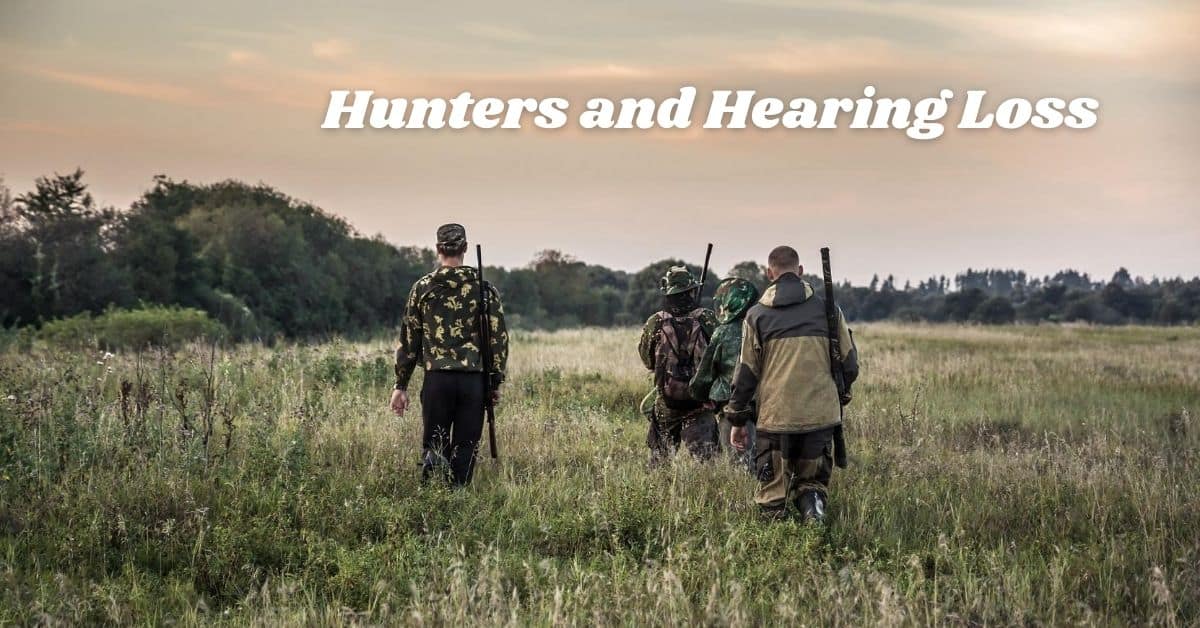Many recreational activities come with hearing risks. Attending a sporting event at a large arena can be a risk for hearing loss, as can a concert or dance club. Even simply attending a bar or restaurant can be a hearing risk depending on the architecture, layout, and volume of music being played.
Yet, one recreational activity that many participants neglect to consider when it comes to hearing loss is hunting. Too many hunters take part in their hobby without wearing the appropriate hearing protection for the decibel level of sound they experience, yet all types of shooting are not the same.
If a hunter seldom takes a shot and uses a gun such as a .22, the risks are significantly lower than someone who shoots skeet or goes target shooting with deer rifle or semi-automatic weapon. Each of these blasts is an isolated sonic event that can cause permanent hearing damage.
Let’s take the opportunity to consider the contexts and types of hearing protection that can prevent loss, as well as what you can do if you have already incurred hearing loss through shooting.
Hearing Protection for Hunters
The riskiest activity for shooting is repeated firing at a range or while shooting skeet. With repetitive blasts, your ears are subjected to repeated sonic assaults, and you need to protect your ears with the most advanced protection available. Most shooting ranges supply noise-cancelling earmuffs, and the same can be used while shooting skeet.
If you are concerned about a long day of target practice, you can even wear disposable foam earplugs under your earmuffs for added protection. Even the most conscientious hunters seldom opt for noise cancelling earmuffs during their entire walk in the woods.
Foam earmuffs can reduce the volume of the blast by at least 10 decibels, which can bring you into a range that is less of a hearing loss risk. Another way to balance more advanced hearing protection with the desire to hear the natural environment of the forest is to get custom-fitted earplugs that limit exposure to the dangerous sound of the blast while admitting the sound of voices and nature.
The most important consideration is that hearing protection is only as good as it is put into use. If you are caught in the moment when you need to shoot without hearing protection, you will not be able to receive the benefits.
Hearing Loss Treatment
If you are an avid hunter, particularly if you frequent the shooting range or enjoy shooting skeet when multiple shots are fired in a short time period, you may have noticed limitations in your hearing ability. The context in which you notice hearing loss will likely not be while at the shooting range but in everyday life.
Some people with hearing loss notice that voices are more difficult to discern within a group, and certain voices can be more difficult than others, such as the voices of children. Many people experience tinnitus in conjunction with hearing loss, which is a ringing or other persistent sound that you can hear in the absence of a sound stimulus. Walking in a quiet forest is one of the times you might notice that ringing in your ears, and others notice tinnitus when they are falling asleep at night in a quiet room.
If you have any of these symptoms of hearing loss or tinnitus, the good news is that treatment options are available and hearing aid technology is developing rapidly.
Treating Hearing Loss
The first step for you to take is to schedule a hearing test with our hearing health professionals. This exam is simple, painless, and usually quite short, and the most common form of hearing test is called pure tone audiometry.
In this test we will play a range of tones at different volumes and ask you to gesture when you hear a tone. With the results of your hearing test in hand, we will be able to diagnose the type and severity of hearing loss and to recommend a range of hearing aids.
Solutions are available for tinnitus as well as hearing loss, and we will be able to describe what types of treatment apply to your individual needs. Contact us today to learn more!

